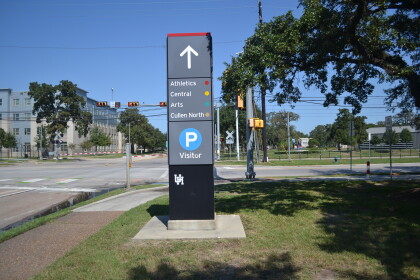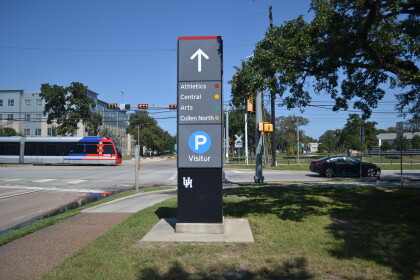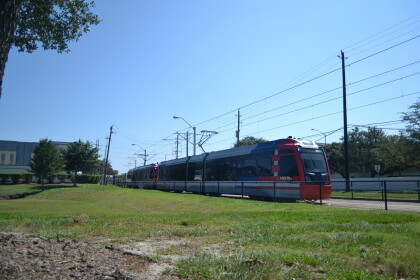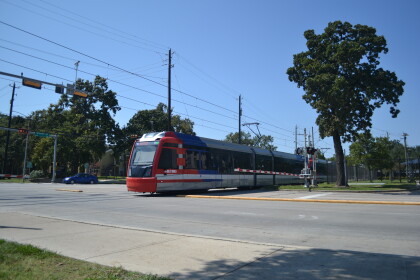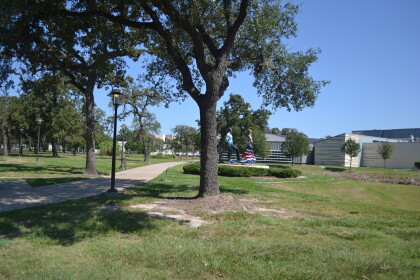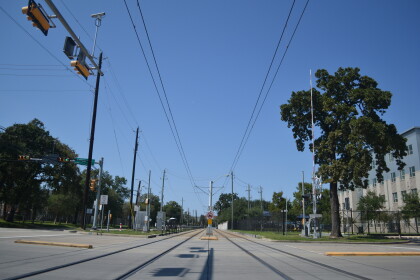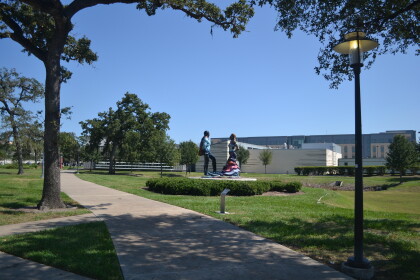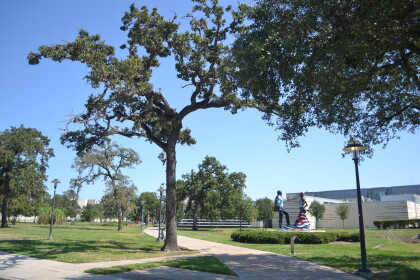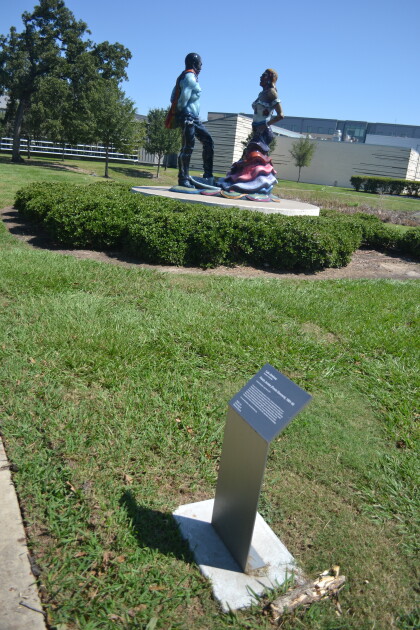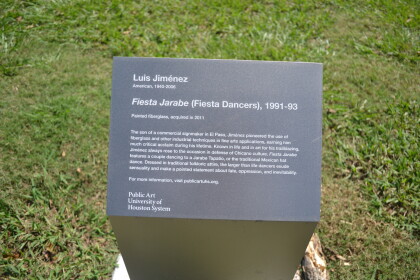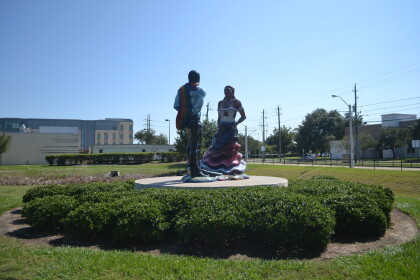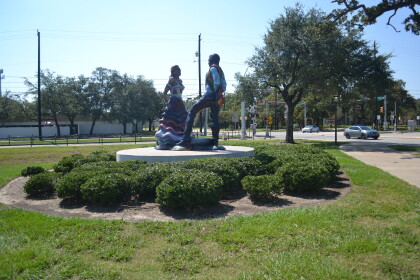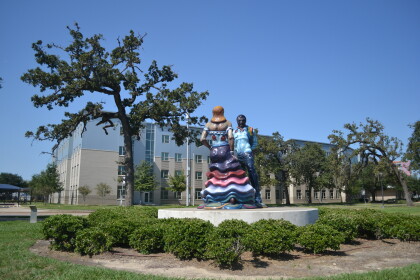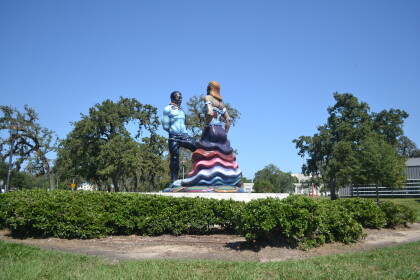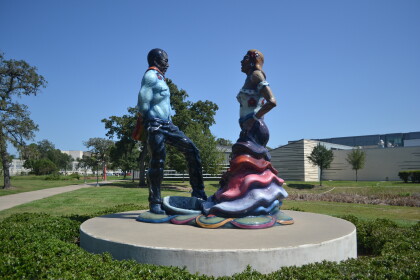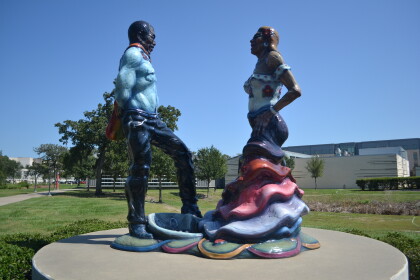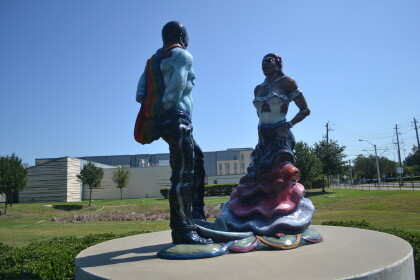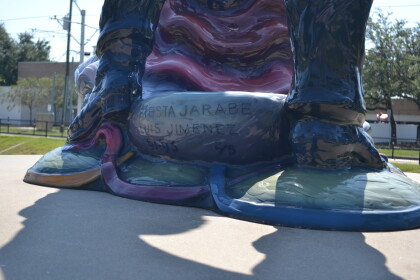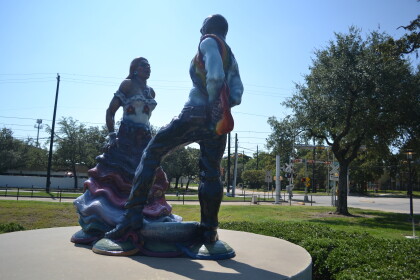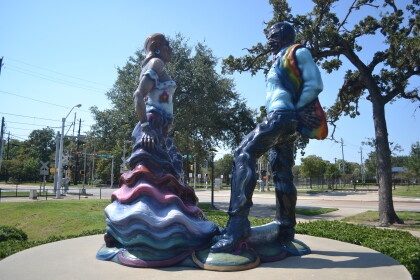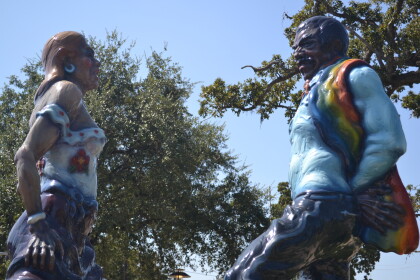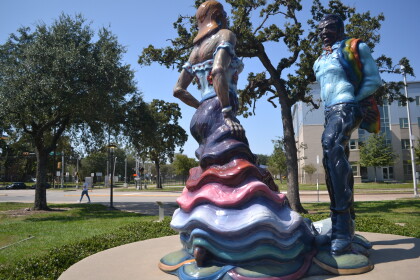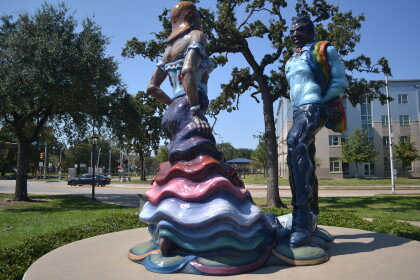Double Physichromie @ University of Houston
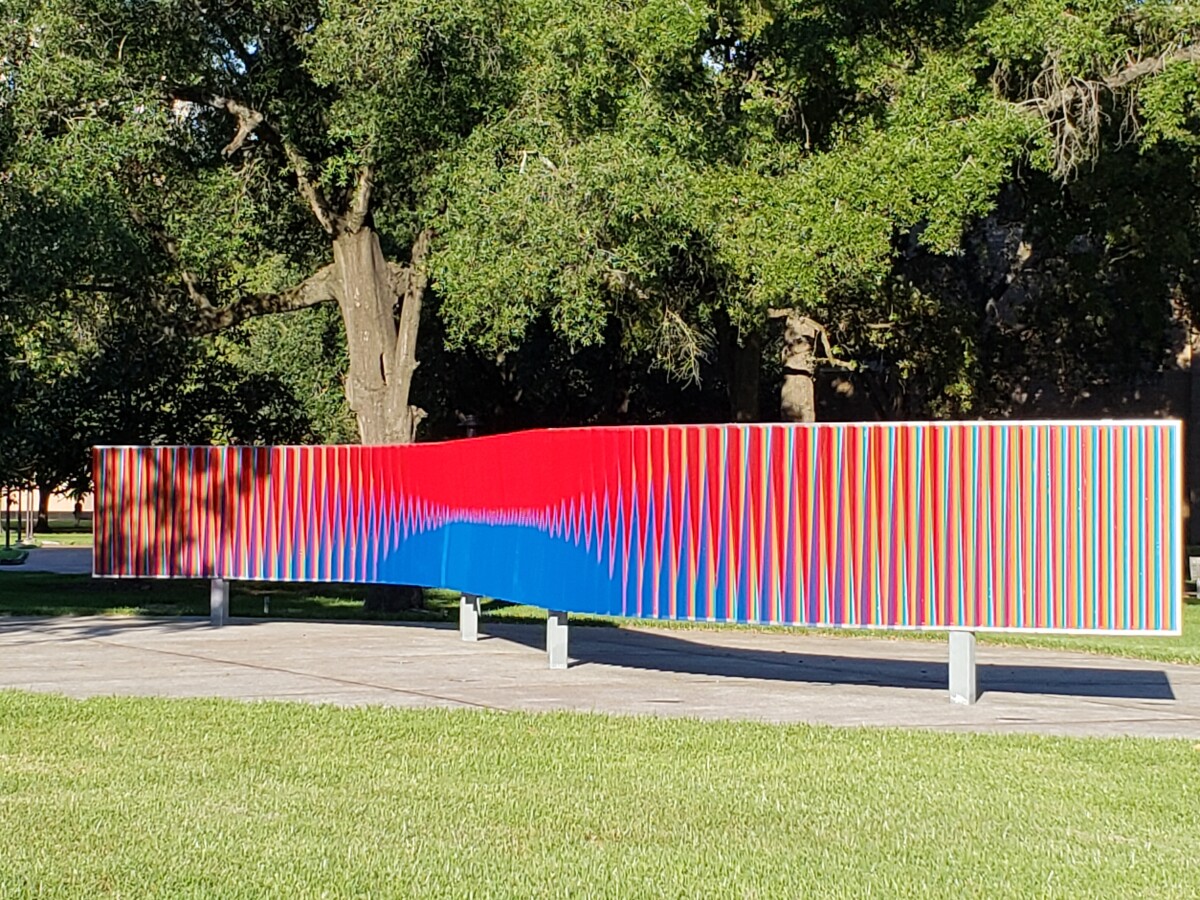
Double Physichromie @ University of Houston
Carlos Cruz-Diez got his start as a graphic designer and advertising man in his native Caracas. Early experiments with color sparked an interest in visual perception and led him to give up graphic design in order to pursue art on a full time basis. "Double Physichromie" was Cruz-Diez’s first permanent public commissions in the United States and one of his largest artworks. In keeping with works from the "Physichromie" (or physical color) series, which began in 1959, the sculpture explores the artist’s concept of “additive color.” This color does not exist on the surface itself but is perceived by the eye as a result of the parallel lines of color that intersect on the plane. "Double Physichromie" shows Cruz-Diez’s intense interest in color and color theory. When standing still in front of it, the viewer can appreciate the complexity of the colors and color combinations used on more than 2000 of its aluminum pieces. Cruz-Diez’s work can be found at the Museum of Fine Arts, Houston, the Tate Gallery, and the Museum of Modern Art in New York, among many museums.
Reportar esta entrada
Más sobre la misma comunidad-colección
Fiesta Jarabe (1991-1993 pintura sobre fibra de vidrio)
Fiesta Jarabe (1991-1993 pintura sobre fibra de vidrio)
...
Fiesta Jarabe (1991-1993 pintura sobre fibra de vidrio)
Fiesta Jarabe (1991-1993 pintura sobre fibra de vidrio)
...
